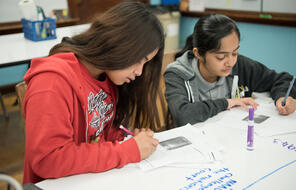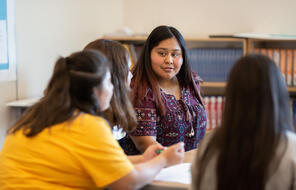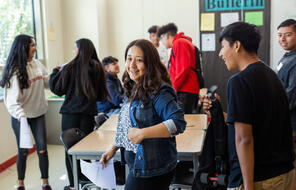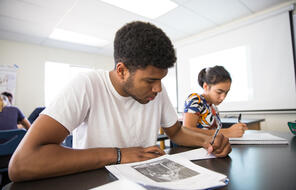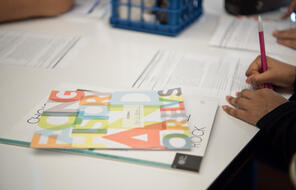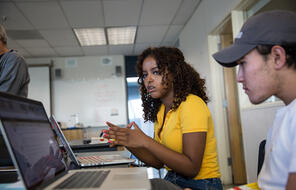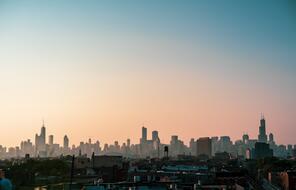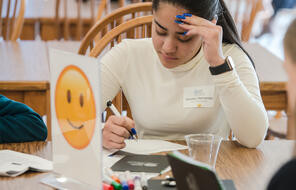Safia’s Story
At a Glance
Subject
- English & Language Arts
- Culture & Identity
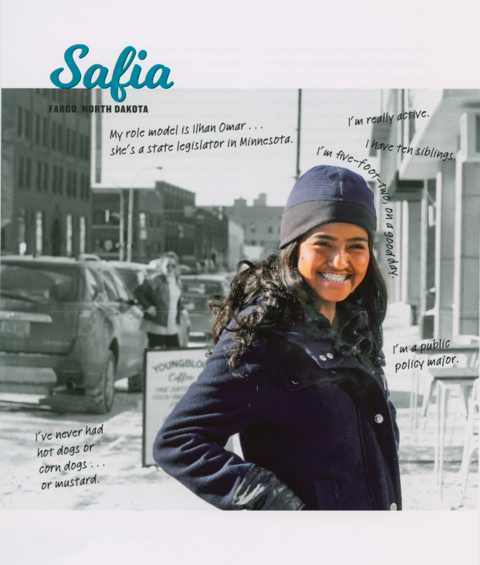
I don’t know why I’m here, in Fargo, because it’s cold and the air hurts your face. No one should live in a place where the air hurts your face, but . . . I’m here.
Everyone’s so confused about me. I do pageants for fun, and in the Miss USA pageant, I was one of the only people of color. Judges were like, “Why is there a Black girl living in Fargo”? And a lot of other girls were like, “Why is there a Black girl wearing a burkini 1 competing?” They were wearing bikinis, and they thought I wore a burkini because I wasn’t comfortable with my skin. They thought I was ashamed, that I wanted to hide.
But no. The reason for wearing the burkini was for other girls. If another girl who was Muslim saw the burkini, she’s going to be really familiar with it. She’s going to think, “Wow, not only is she Black, but she’s Muslim. And. She’s. On. That. Stage.”
At home, my parents were confused too. They were like, “What? Why is our daughter doing these pageants?” They grew up in Somalia, and I grew up in Ohio, so there’s a huge gap in terms of what’s expected of a woman. I was told that my place is the home, my place is in the kitchen, you know? Not strutting on a stage. Not working in political campaigns that get Ilhan Omar, the first Somali-American Muslim legislator, elected to the House of Representatives.
The point is, everything about me is apparently confusing. Nobody understood me. I started to become super self-conscious. I stopped focusing on the pageant. I started thinking, “Do the judges even like dark skin? What do I need to do? Do I have to stay out of the sun? Will they accept my Blackness? My Muslim-ness? Will they accept both together? What if they accept neither?
My message is to be comfortable in your skin and to be confident in who you are. Especially in minority countries, where they advertise whitening 2 , you know? White should not be the beauty standard. You are beautiful in your own way, and if you’re not worried about that, you have more brain power to be focused on your education and other things that might matter. 3
- 1Aheda Zanetti invented the burkini—a swimsuit that covers the whole body except for the hands, feet, and face—in 2014. In The Guardian, she wrote that she created the burkini “to give women freedom, not to take it away . . . it symbolizes leisure and happiness and fitness and health.”
- 2As of 2017, companies like Unilever and L’Oreal are reported to be “cashing in on a global skin lightening and bleaching industry worth between $10 and $20 billion.”
- 3 From Winona Guo and Priya Vulchi, Tell Me Who You Are: Sharing Our Stories of Race, Culture, and Identity (New York: Penguin Publishing Group, 2017), 214–215. Reproduced by permission of TarcherPerigee, an imprint of the Penguin Publishing Group, a division of Penguin Random House LLC. All rights reserved.

